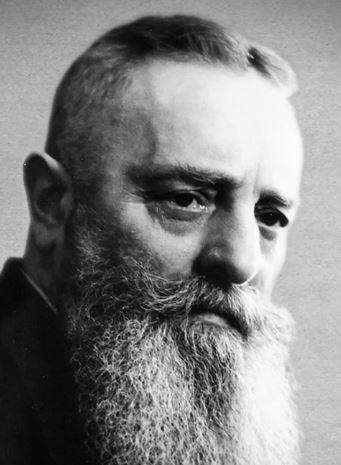Viktor Schauberger

Viktor Schauberger
Pioneer of Nature Observation, Water Research, and Implosive Energy
Definition:
Viktor Schauberger (1885–1958) was an Austrian forester, nature observer, inventor, and unconventional scientist who studied the natural movements of water and energy in depth. His work was based on the idea that modern technology works against the principles of nature—particularly through explosion instead of implosion—and that true sustainability is only possible by imitating natural processes.
Core Ideas and Principles:
Schauberger observed nature with exceptional precision and arrived at insights that were far ahead of their time. His main ideas include:
Implosion instead of explosion:
While conventional technology is based on pressure, heat, and destruction (explosion), Schauberger advocated for an implosive, suction-generating, and constructive technology, as found in nature (e.g., in the swirling motions of water or air).
Water as a living being:
For Schauberger, water was not just a physical element, but a living carrier of energy and information. He distinguished between "living water" (fresh, cool, oxygen-rich, in natural motion) and "dead water pipes."
Natural Movement – The Vortex:
He considered the spiral, swirling movement (similar to the Fibonacci spiral) to be the fundamental principle of natural flow and growth – in water, air, light, and even in plant growth.
Free Energy:
Schauberger believed that through certain vortex and temperature techniques, new, non-destructive forms of energy could be harnessed – often discussed today under the term "free energy" or "space energy."
Well-known inventions and concepts:
Drinking water turbulencers / implosion devices
Trout turbine (a supposedly extremely efficient turbine based on water vortices)
Repulsine – a UFO-like flying object that was supposed to function through implosive air movement
Timber transport raft systems that utilized the natural flow of rivers and the temperature behavior of water
Impact and Reception:
Schauberger's ideas were long ignored by established science or dismissed as pseudoscientific. Today, however, they are receiving increasing attention – particularly in the fields of permaculture, water revitalization, alternative energy technology, and biomimetic research (technology modeled on nature). His work has inspired both spiritual movements and scientific-experimental circles.
Criticism:
Many of his theses have not yet been empirically proven and are considered speculative from an academic perspective. Nevertheless, his ideas are fascinating due to their consistently nature-oriented approach and their visionary character.
Related terms:
Implosion technology, water vortex, free energy, biophysics, nature observation, permaculture, Nikola Tesla

